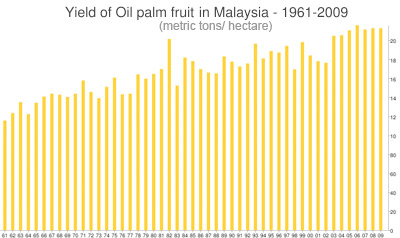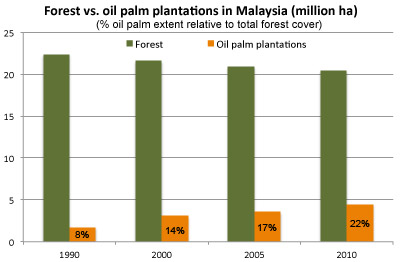Just days after being rejected by the the Senate Community Affairs Committee, Australia’s Senate passed the Amended Truth in Labeling – Palm Oil Bill.
The bill, which requires products containing palm oil to be explicitly labeled as such, will next go to the House of Representatives where it is expected to pass if an alliance between the Coalition and Green parties holds.
The bill was originally proposed by Independent senator Nick Xenophon of South Australia as a means to make consumers aware of whether the products they use contain palm oil, which environmental campaigners have linked to deforestation in Indonesia and Malaysia. The bill will allow manufacturers to note whether they use certified sustainable palm oil, which supporters say could encouraged demand for palm oil sourced from “greener” plantations.
The passage of the bill was condemned by the Malaysian palm oil lobby, which strongly opposed the measure. Malaysia fears that listing palm oil as an ingredient could result in discrimination against palm oil-containing products in the marketplace.
 Palm oil yields in Malaysia have been gradually improving over time…  … but forest cover continues to decline. |
“Malaysia is of the view that labeling palm oil purely from the perspective of sustainable production is discriminatory,” said Y.B. Tan Sri Bernard Dompok, Malaysia’s Minister of Plantation Industries and Commodities, in a statement. “In addition, competing vegetable oils are not required to be labeled.”
“It is with great regret and disappointment that the Australian Senate has not accorded the due attention contributed by the oil palm industry in Malaysia and the sustainable practices adopted,” he said, asserting that 55.7 percent of Malaysia is forested, a figure that counts plantations as forest. “This industry is currently an important pillar in Malaysia’s economy and has contributed substantively towards addressing rural poverty and generating employment in the agricultural sector. In addition, the industry has contributed immensely towards meeting global demand for food products and a source of renewable energy which is environmentally friendly.”
The current food labeling laws in Australia allow palm oil to be listed as “vegetable oil” on packaging even though it is produced from a fruit.
Palm oil is used widely in processed foods. By virtue of its high yield, palm oil is a cheaper substitute than many vegetable oils, but environmentalists note that more than half of oil palm expansion since 1990 has occurred at the expense of forests, including wildlife-rich and carbon-dense rainforests and peatlands.
The palm oil industry contends that Europe and the United States destroyed most of their forests long ago and have little right to be critical of environmental degradation associated with palm oil production. Nevertheless some operators have begun to clean up their operations in fear of losing access to the most lucrative markets. Several Malaysian companies are leading the way.
Related articles